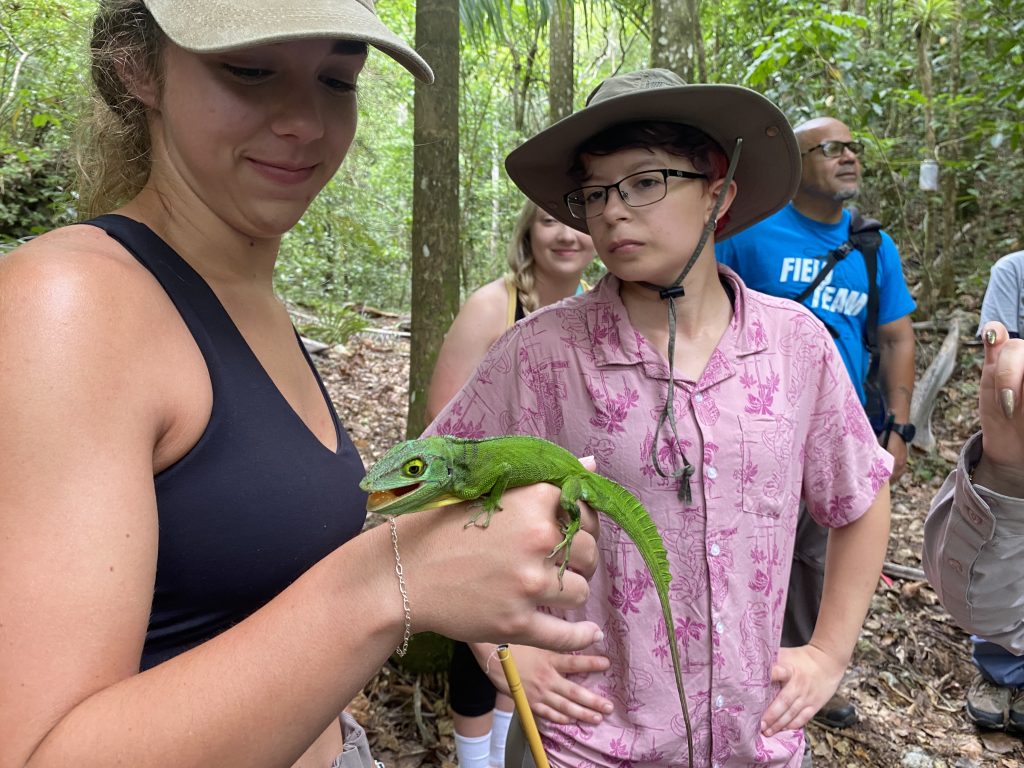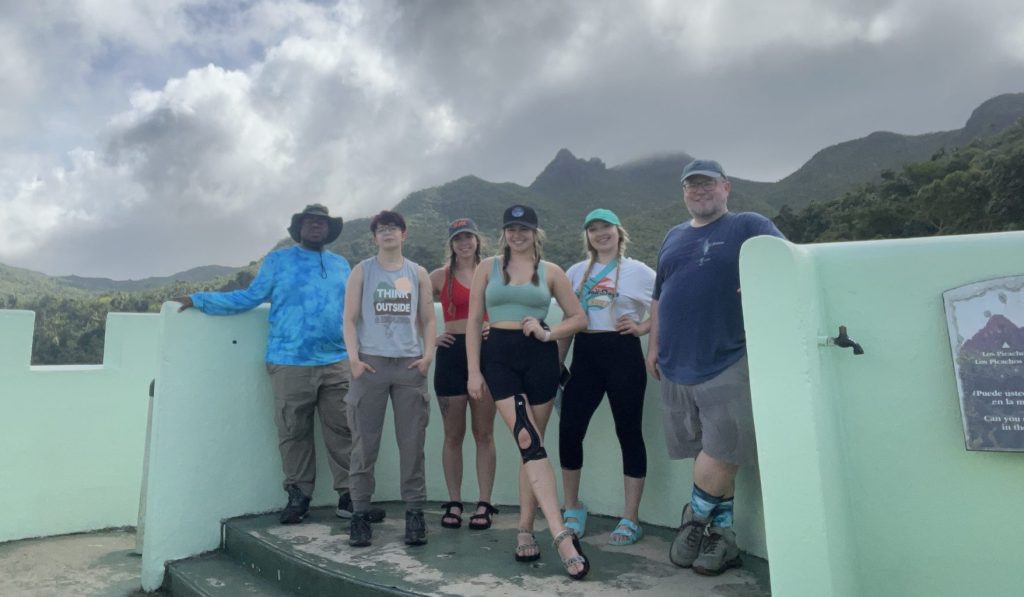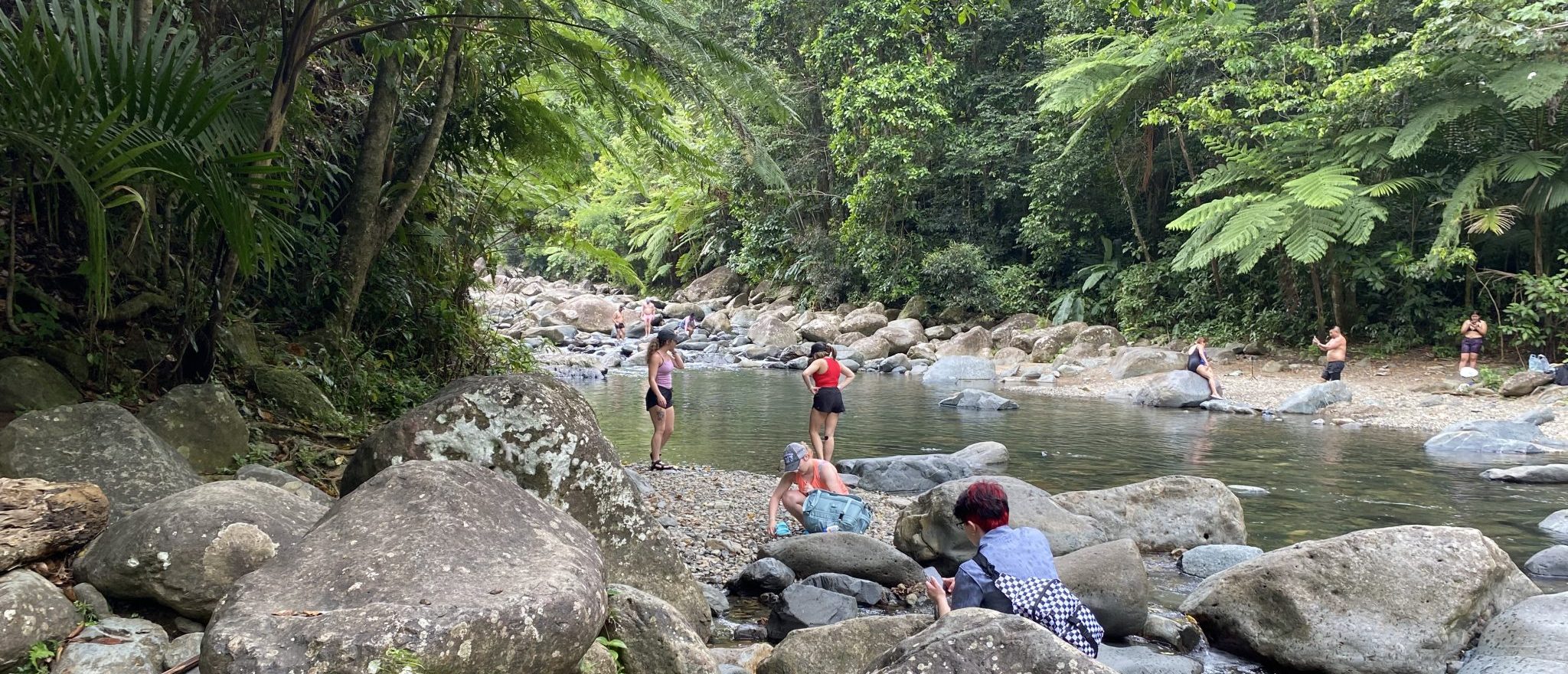PUERTO RICO – Any time that Zen Rodriguez was on vacation as a child, she wanted to be in a zoo, aquarium or a museum.
So Rodriguez didn’t hesitate at the chance to do field work in Puerto Rico as part of the Biology of Islands class (BIOS 490) through LSUS.
Rodriguez was one of five students to travel to the Caribbean island as part of a two-week trip this past month.
“To have two full weeks of studying nothing but island biology and the indigenous animals of Puerto Rico, it was a dream come true,” said the fifth-year senior, who switched majors from music education to field and micro-organismal biology. “I have not felt as fulfilled in my entire life as I did on the trip.
“To just step outside and see so many different reptiles without even looking hard was so refreshing to me.”

Dr. Stuart Nielsen teaches the island biology class and led the LSUS group, which included Rodriguez, Autumn Morman, Lauryn Broussard, Jailen Rhine and Lauren Wise.
The LSUS students partnered with students from the University of Puerto Rico Mayaguez to study the vast array of species found on the island.
This summer is the first time the Biology of Islands class has been offered at LSUS, and Nielsen said islands are on the front lines of many current biological issues.
“Islands are, by their very nature, living laboratories and are great places to study critical, current issues related to the study of patterns of biodiversity, including species invasions, extinction, and climate change,” Nielsen said. “And due to their smaller size, discrete boundaries, and remoteness, any global perturbations such as climate change, mass extinctions, and/or the effects of widespread habitat loss and other human influences on biodiversity are likely to observed sooner than on mainland systems.
“Therefore, islands are at the forefront if you want to observe these processes in action.”
The trip wasn’t completely laden with the world’s most pressing problems.
Morman, a field and organismal to pursue marine biology, said her favorite part was snorkeling in the coral reefs of Culebra, a neighboring island off Puerto Rico’s eastern coast.
“We swam in bioluminescent algae,” Moran said. “The entire experience was remarkable with the different parts of the island we visited and seeing all the unique vegetation and organisms.
“We also got to see how the climate is affecting not just the inhabitants on the island but the island itself. I can definitely use some of the knowledge that I learned in this island biology course in my future marine biology career, especially since I want to go on expeditions in my future studies.”
The LSUS group aided local biologists in cleaning up a beach frequently used by nesting leatherback sea turtles, learning about the biology of this enormous turtle that eats jellyfish.
Students hiked often through the El Yunque National Forest and other parts of the island, something that senior Jailen Rhine said he’ll prepare better for next time.
“I enjoyed it, though sometimes I was left constantly out of breath,” said the cellular and molecular biology major. “I would recommend that (undergraduates) travel as part of their program, although I would say make sure you’re physically fit for hiking and being out in the heat for long periods of time.”
Rodriguez, who had already decided to study herpetology (amphibians and reptiles), said the trip influenced her to branch out into conservation ecology.
“Conducting the field survey for anoles (lizards with qualities of the iguana) showed us what it’s like to be an ecologist,” Rodriguez said. “Island biology is so diverse, and even in the short trip we took, we got to witness so many cool examples of speciation that we would have not seen if we were not on such a small land mass.
“I am definitely considering doing my master’s degree research in Puerto Rico.”
Speciation is the formation of new and distinct species in the course of evolution. Because land-based organisms on islands can be isolated from their ancestors, the environment is ripe for the evolution of different species.
“Small-scale changes (microevolution) lead to big changes (macroevolution or speciation),” Dr. Nielsen said. “Since islands are generally small and isolated … and filled with fewer species, those species are generally free from typical constraints (like competition with other species) on the mainland.
“Studying evolution on islands means less complexity, which hopefully means you can hone in on the driving influences behind local adaptation (macroevolution).”


